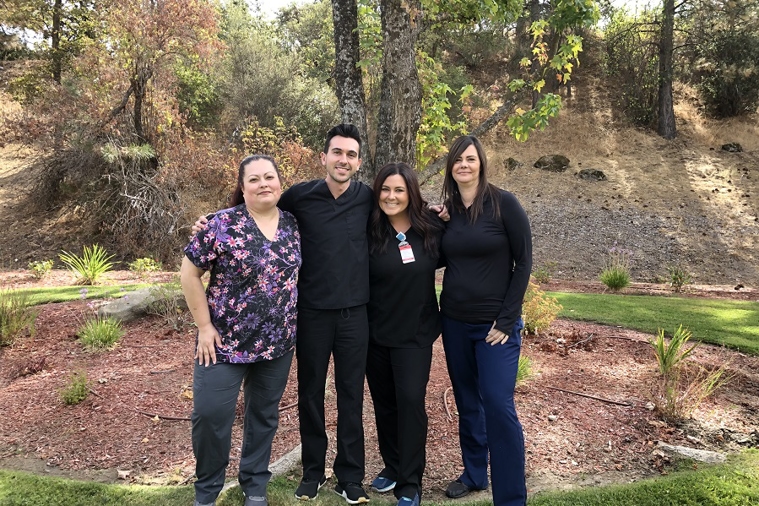
Improving rural access in dental care
Brushing up on dental care can lead to more than just a pretty smile. In fact, oral health is closely linked to better overall health, which can lead to a lifetime of smiles!
Untreated oral health issues are associated with an increased incidence of stroke, heart disease, asthma, diabetes and Alzheimer’s disease. In addition, the U.S. Department of Health and Human Services (DHHS) says poor oral health may inhibit the ability to speak, smile, smell, taste and effectively convey emotions.
For those in rural communities the issue is even greater because the DHHS notes that for more than 15 years oral health has been one of the greatest unmet needs of rural Americans. “A lot of our patients are diabetic, which means they are more prone to infection,” agrees Mathew Delgadillo, DDS, who provides dental care at an Adventist Health rural health clinic in Central California. “Having a clean mouth with fewer germs can reduce that risk. There is also a link between periodontal disease and cardiac disease. And there’s been a study showing that the more teeth you are missing, the higher the incidence of Alzheimer’s and dementia due to the link between plaques (sticky build up) on teeth and plaques in the brain.”
Dr. Delgadillo says the key to better oral health for rural residents is access. He notes that in the town of Oakhurst where he works, there is a huge population of people with Medi-Cal that is not accepted by all dentists. But Adventist Health’s rural health clinics primarily care for Medi-Cal patients. “I probably see 40 new patients each month,” he says. “There is a great need.”
Adventist Health is expanding its dental services to better meet this need. Adventist Health has hired additional dental providers for its existing rural dental clinics and, most recently, opened a new dental clinic in Fowler, California. More expansion is planned for the future.
In addition to access, a critical element is regular preventive care. “I would like my patients—and all patients—to understand the value of being on a regular practice of care,” says Dr. Delgadillo. “So many don’t realize the benefit of dental maintenance that will catch problems when they are small.”
Dr. Delgadillo came back to rural California to practice medicine after finishing his education and launching his career in a more affluent, urban community. “There were lots of providers and opportunities for care,” he says. “My patients in Oakhurst don’t have that same access to dental care and they are so kind and appreciative.” He’s had patients bring homemade food and produce they grew in to the office as a thank you for him and the staff. “It’s a lot more rewarding to work here.”



